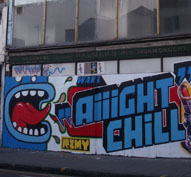The other Saturday I was minding my own business in the British Heart Foundation second-hand bookshop on Black Boy Hill in Bristol (that name incidentally is indeed a legacy of the slave trade and the city hasn’t got around to changing it). On a shelf for sale was the American 9-11 Commission report. I didn’t buy it, partly because you can read it online, for nothing. It came out within three years of September 11, 2001, which compares well with the Chilcot inquiry into the Iraq War which is taking about as long as the war. The start of the US’ inquiry into 9-11 begins on that morning, with the named terrorists carrying through the deed. I know Hollywood did a movie about Flight 93 that crashed, presumably thanks to passengers taking on the terrorists. After all these years, the simple and audacious plan and the murderous violence of the fanatics still have the power to shock. And force us into a pause to take stock of how badly the civilised world has done since, against terror.
But my reason for telling you all this is what the CCTV (has any footage been searched more carefully?!) showed at the airports that the hijacked jets took off from. As some terrorists were carrying knives, they did show up in the metal detectors; and they were searched; yet they boarded regardless. A failed search regime cost the world dear, besides the lives of thousands. A reminder of what the stakes can be in a security search (page 24).
Talking of CCTV evidence, it might be a staggering oversight that it’s taken 20 years or more for the authorities to come up with a qualification for handling of video evidence, but at least there’s one now, and we were invited to New Scotland Yard again to hear about it (page 36). Going upstream, if you like, to the places that send the Met Police the evidence for them to go after robbers and gropers and so on, we visited a bus garage on the outskirts of what was the Olympic Park (page 41). Given all the bad and sad things that private security has to deal with – and that you read about in these pages often enough – it’s only proper to point to some good news, where Security has made a difference, for the better. Just as it’s hard to shout about crime prevention success if the criminals aren’t doing crimes – what is there to show?! – so it’s easy to forget that buses and trains used to be ridden with scratched names and graffiti. Bristol actually, thanks to Banksy and other artists, is particularly bad, or good, for graffiti, depending on what you think about it. On walls and any surfaces around train stations for instance, you can still see plenty of graffiti; but not on buses any more. Either bus passengers magically are behaving better; or the cameras have worked.










